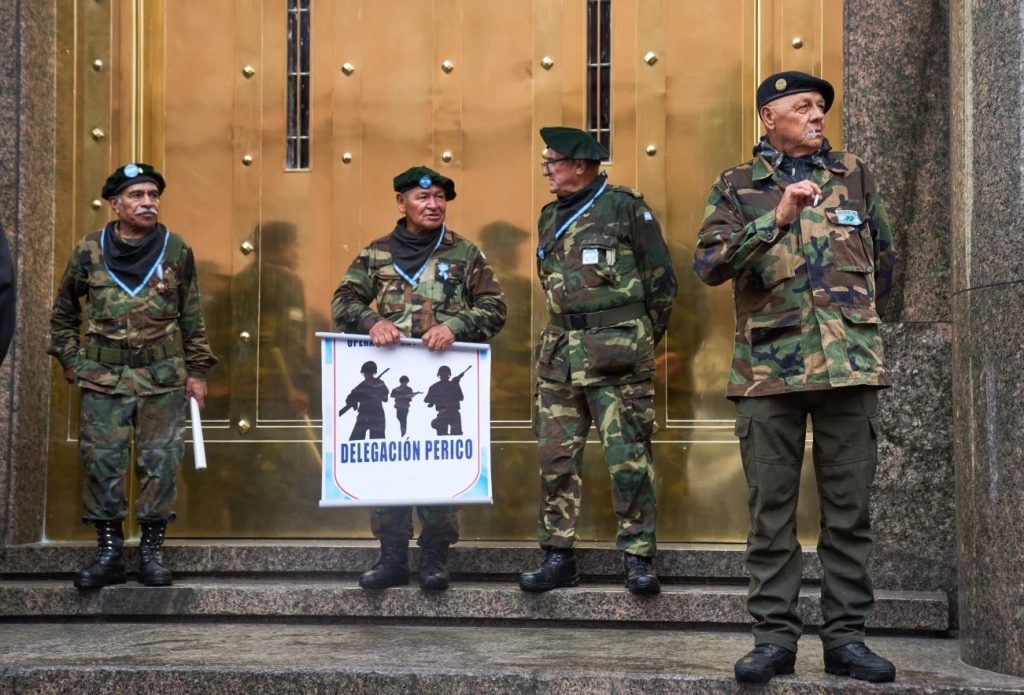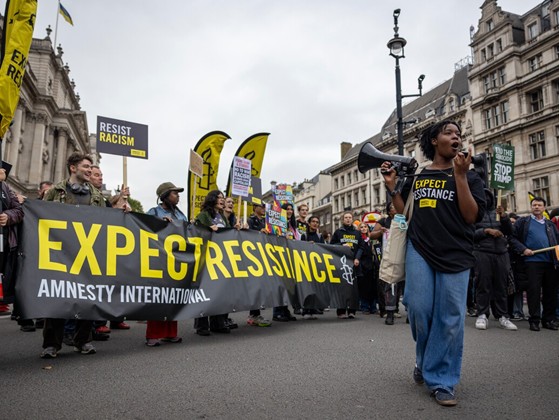Write for Rights (W4R) is Amnesty International’s annual campaign, sending greetings cards to prisoners of conscience, their families and other human rights defenders around the world. Since W4R started in 2001, millions of people have taken part, helping to change the lives of those whose human rights have been taken away. Over the past 20 years, more than 56 million actions have been taken and over 100 people featured in the campaign have seen positive outcomes in their cases.
To take online actions about all the cases on the main Amnesty International site.
You can download the Campaign Booklet and other information on the AIUK site.
You can see videos on all the cases, created by Amnesty Canada, on YouTube.
Below are two case our group will focus on this year. The Guerreras por la Amazonía we have taken on as a case file and will be working on in the months ahead.
Ecuador: Guerreras por la Amazonía
(Warriors of the Amazon)
Young Amazonian defenders fighting gas flaring
‘We are not just activists, we are daughters of the earth, of our communities. We are warriors of the jungle that refuses to die. We are the
Amazon that resists the impacts of the oil industry, and for which our communities and our planet are burning.’
Fifteen young Indigenous activists from the Ecuadorian Amazon – known as Guerreras por la Amazonía – are challenging gas flaring operations that harm their health and environment. Despite facing threats and intimidation, they continue to demand climate justice and
protection for their communities.
Gas flaring emits potent greenhouse gases such as methane, exacerbating the climate emergency. These gases severely damage the environment, biodiversity and the health of marginalised Indigenous communities in the Amazon.
In 2020, Guerreras por la Amazonía and the Union of People Affected by Chevron-Texaco (Unión de Afectados por Texaco; UDAPT)
sued the Ecuadorian state over gas flaring. Although a court ruled in favour of eliminating flares in 2021, the government has delayed compliance and the practice continues, polluting the environment and risking activists’ safety.
Urgent international support is crucial to safeguard their rights and health. Read more about the Guerreras por la Amazonía and the history of their campaigning.
Send a message of support and solidarity
Guerreras por la Amazonía
c/o Unión de Afectados por Texaco (UDAPT)
Av. Venezuela y Progreso
Lago Agrio, 210150
Ecuador
Language Spanish
Pronouns All she/her
Suggested message “You are brave warriors fighting against the monsters of fire. With your actions, you not only defend the rights of
your communities, but also protect our planet from climate change.
Keep fighting to extinguish the gas flares and ignite life. You have all our support. Your struggle is our struggle.”
In Spanish this is
“Eres valiente; guerreros que lucha contra los monstruos de fuego. Con tus acciones, no solo defiendes los derechos de tus comunidades, sino que también proteges nuestro planeta del cambio climático.Sigue luchando para extinguir las antorchas de gas e encender la vida. Cuentas con todo nuestro apoyo. Tu lucha es nuestra lucha” [Read more…]


 Across the globe Amnesty activists have been protesting against the arrest of peaceful protesters in the United Kingdom. Amnesty Researcher and Campaigner Catrinel Motoc said:
Across the globe Amnesty activists have been protesting against the arrest of peaceful protesters in the United Kingdom. Amnesty Researcher and Campaigner Catrinel Motoc said: